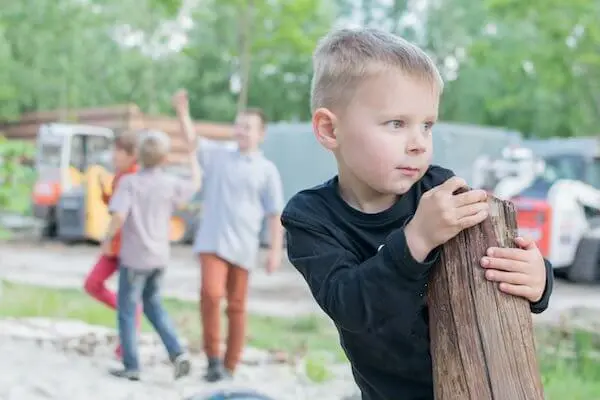
Parenting Strategies For Helping Neurodiverse Kids
Today, between 15% to 20% of the population is considered to be neurodiverse. According to Harvard Business Review, “Neurodiversity describes the idea that people experience and interact with the world around them in many different ways; there is no one ‘right’ way of thinking, learning, and behaving, and differences are not viewed as deficits.”
As this trend of self-recognition (or parental recognition) has grown, more people have become aware that they struggle under traditional or “normal” circumstances with basic, everyday tasks. Different learning styles affect kids profoundly trickling into the classroom in ways never previously seen.
Loving your child is the most important step towards helping your kid feel accepted and OK. Everything else can be learned.
What Kids Really Need…
Given how socially conscious our society is, it’s interesting to note that the hashtag #neurodiverse has been used 457 million times in the past 12 months on TikTok alone. So while we’re aware of what’s happening and we can see the trends all around us, what we need to talk about is what lies at the heart of all of this, and that is the desire to belong. To feel accepted, included and respected for who we are without needing to rearrange our parts or hide the pieces of ourselves that don’t quite “fit in.”
As one client said to me, “Fitting in is like cutting off parts of yourself to fit into a box. Belonging is feeling that people welcomed you, and that you’re accepted for who you are.”
6 Strategies To Support Neurodiverse Kids
Although it is common to focus on the negative, especially academic weaknesses, instead focus on the positives. Talk to your child and identify what they think they are good at. Concentrating on what she does well and likes will help her when times get tough.
Sometimes, all that needs to be said is, “I understand.” As tempting as it is, as parents, we don’t have to have the answers to fix everything. Normalizing that frustration, pain and anxiety exist and are normal under pressure or when there is a hope or expectation that is unmet teaches your child that what they’re feeling is OK under the circumstances. And, that they are allowed and encouraged to feel their feelings as they occur.
To build self-awareness, work with your child to acknowledge feelings, especially difficult ones such as anger, worry and frustration. Helping to identify and label emotions will help her learn to pause when she’s upset and build self-control and communication skills. Model using “I” statements, such as “I feel sad,” I wish you would not do that.”
Recognize your own triggers and work at keeping calm. As a family, share ways you can cope with negative feelings and how to calm down. Perhaps you can suggest a time out or create a zen corner so everyone has a place to pause and calm down before reacting or saying something they would regret. Practicing skills like this help build self-control skills and confidence over time.
This is a two sided tip. Don’t hesitate to apologize when you lose your cool, make a mistake or get upset. Demonstrate that even when you have conflict with your child that you can approach it with respect and dignity.
The other side is to accept your child apologies and wishes to be better in the future. By teaching that mistakes, missteps and blunders are normal for us all, you reduce the pressure on your child to be perfect. This helps neurodiverse kids immensely.
Celebrate with your kid when they do things well. This doesn’t mean balloons and streamers for every good deed, it simply is noticing, acknowledging and honoring the progress your child is making in their life.
I make a point to say to my kids on a regular basis “atta boy” “practice makes better” and “I can see that you tried your best.” Each of these phrases infuses into your kid that you believe in them and see great things for their future, whatever that may look like.
Building Social Capital is Critical for Strong Relationships.
“Social capital is the network and goodwill that you have with other people that help you not only accomplish tasks, but also [maintain] important social connections,” Read more.
Family Blogs

12 Tips to Manage Your Emotions & Communicate Better This Holiday Season
As we approach the end of the holiday season, everyone has a list of expectations about how the last few get-togethers will go. “Last year was a disaster when Uncle

Beyond Ghosting: ADHD, Soft Fades & The Pain Of Ambiguous Social Cues
Have you ever noticed a friend slowly drift out of your life? Not with a dramatic fight or a clear breakup conversation. This is more like fewer texts, shorter replies

How To Ease Your Anxiety When You Have To Interact With New People
Interacting with new people can be a source of anxiety and stress for many people. Whether it’s attending a social event, starting a new job, or joining a new community,

